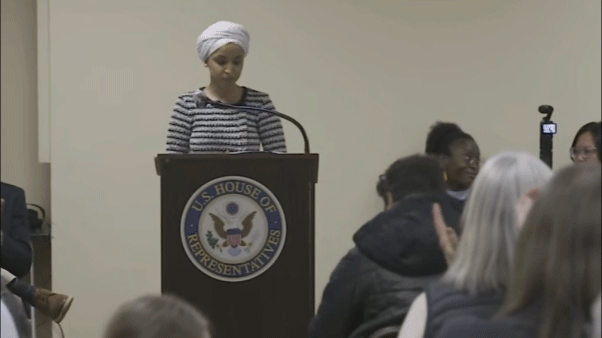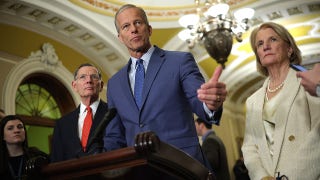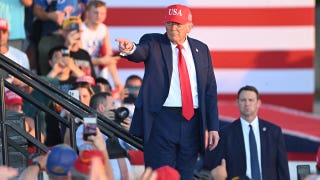The MSNBC host, who on the eve of Memorial Day said it makes him “uncomfortable” to describe fallen soldiers as heroes, apologized Monday after outcry from a top veterans group.
"On Sunday, in discussing the uses of the word "hero" to describe those members of the armed forces who have given their lives, I don't think I lived up to the standards of rigor, respect and empathy for those affected by the issues we discuss that I've set for myself," Chris Hayes, host of "Up With Chris Hayes," said in a statement. "I am deeply sorry for that."
The comment was made while kicking off a panel discussion on his show and he noted, it's "very difficult to talk about the war dead and the fallen without invoking valor, without invoking the words 'heroes.'"
Hayes tried to explain why that makes him uneasy: "I feel ... uncomfortable about the word hero because it seems to me that it is so rhetorically proximate to justifications for more war."
Veterans of Foreign Wars, in addition to a throng of conservative bloggers and groups, slammed Hayes for being so conflicted about the term.
"Chris Hayes' recent remarks on MSNBC regarding our fallen service members are reprehensible and disgusting," VFW National Commander Richard DeNoyer said in a statement to FoxNews.com. "His words reflect his obvious disregard for the service and sacrifice of the men and women who have paid the ultimate price while defending our nation. His insipid statement is particularly callous because it comes at a time when our entire nation pauses to reflect and honor the memory of our nations' fallen heroes."
On the show, Hayes couched his remarks and acknowledged his concerns might not be justified.
"I don't want to obviously desecrate or disrespect memory of anyone that's fallen, and obviously there are individual circumstances in which there is genuine, tremendous heroism -- of you know, hail of gunfire, rescuing fellow soldiers and things like that. But it seems to me that we marshal this word in a way that is problematic," he said. "But maybe I'm wrong about that."
In his statement, he went on to say, "In seeking to discuss the civilian-military divide and the social distance between those who fight and those who don't, I ended up reinforcing it, conforming to a stereotype of a removed pundit whose views are not anchored in the very real and very wrenching experience of this long decade of war. And for that I am truly sorry."











































